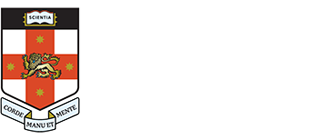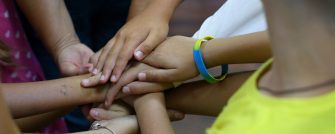
23 October 2025 | UNSW Sydney
2025 Kaldor Centre Conference
Building bridges: Advancing refugee
protection in a divided world




About
Meet this moment — together.
Refugee protection stands at a crossroads. Displacement is rising. Political divides are deepening. Funding is vanishing. Now more than ever, we need to pause, reflect and forge new paths forward — together.
The 2025 Kaldor Centre Conference brings together policymakers, practitioners, scholars and civil society, including people with lived experience of displacement — to ask the hard questions, share ideas and build real-world solutions.
This event focuses on building bridges — across sectors, communities and disciplines — to strengthen refugee protection in Australia and globally.
This is more than a conference — it’s a vital meeting point for those shaping refugee policy and practice.
Join us at #Kaldor25!
In one full, energising day, we’ll explore:
- How global political shifts, like the US election, affect us all;
- How to foster meaningful dialogue and counter misinformation in polarised and populist times;
- How to bridge the gap between rhetoric and reality in advancing meaningful refugee participation;
- What’s needed to sustain protection as funding for UNHCR and other organisations collapses;
- How refugee protection fits within broader human rights struggles.
Come for a day of principled, practical insights — and leave recharged, better connected, and more ready to meet the moment.
Program
Building bridges: Advancing refugee protection in a divided world, offers a dynamic program of keynote and panel sessions, bringing together diverse voices and perspectives.
Accessing the Program: Expand + and explore speaker profiles and topics within the Program to help you prepare for the session.
Thursday, 23 October
- Thursday
-
In the foyer, John Niland Scientia Building (G19), UNSW Sydney.
-
The virtual access link will open at 8.50am AEDT.
For assistance, please contact our support team at kaldorcentre@unsw.edu.au.
-
-
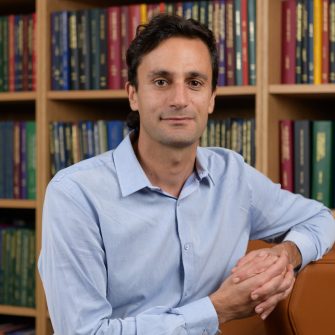 Prof Daniel GhezelbashProfessor of Law & Director, Kaldor Centre for International Refugee LawDialog
Prof Daniel GhezelbashProfessor of Law & Director, Kaldor Centre for International Refugee LawDialog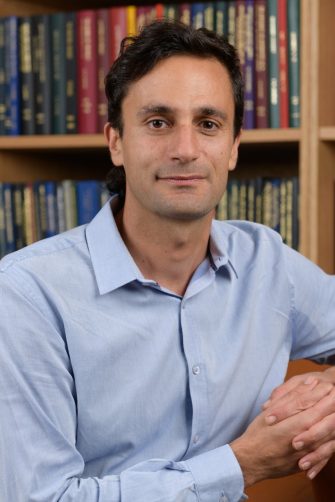

Prof Daniel Ghezelbash
Professor of Law & DirectorKaldor Centre for International Refugee LawProfessor Daniel Ghezelbash is Director of the Kaldor Centre for International Refugee Law, and an Australian Research Council DECRA Fellow. A globally recognised expert in international and comparative refugee and migration law, his research focuses on improving the fairness and efficiency of asylum procedures through comparative analysis. Daniel has published extensively on the global spread of restrictive asylum policies and is a passionate advocate for using technology to advance access to justice and combat systemic discrimination. He founded the Kaldor Centre Data Lab, pioneering data-driven approaches to legal decision-making in refugee cases, and is a leading voice in legal technology and generative AI in Australia. He is Special Counsel at the National Justice Project, and sits on the boards of the Refugee Advice and Casework Service, Wallumatta Legal, and the Access to Justice and Technology Network.
Professor Daniel Ghezelbash, Director of the Kaldor Centre for International Refugee Law, will deliver the welcome address.
-
-
-
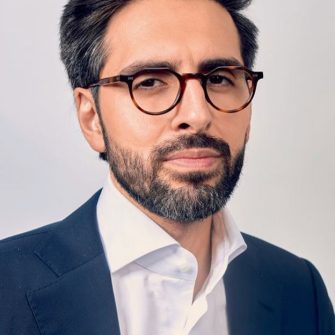 Mohammed NaeemSenior Director for Advocacy Strategy, Refugees InternationalDialog
Mohammed NaeemSenior Director for Advocacy Strategy, Refugees InternationalDialog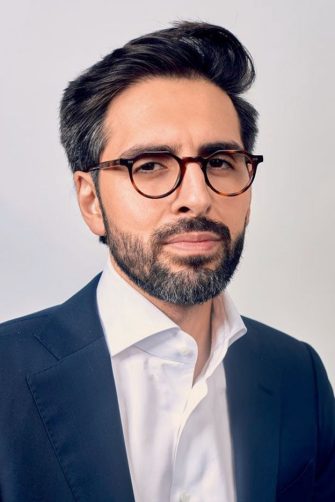

Mohammed Naeem
Senior Director for Advocacy StrategyRefugees InternationalMohammed Naeem is the Senior Director for Advocacy Strategy at Refugees International, where he drives the organization’s congressional engagement. Previously, between roles at the American Immigration Council and More in Common, Mohammed built nationally recognized public advertising campaigns, spearheaded cross-sector partnerships, and socialized signature audience research. He has held several leadership roles, including as the inaugural Chair of the United States Refugee Advisory Board and Representative of UNHCR’s Refugee Advisory Group to the Consultations on Resettlement and Complementary Pathways. He currently serves on the Advisory Committee on Public Issues of the Ad Council, the Advisory Council of Pathways International, and the Board of Directors of Refugee Council USA. Mohammed is a graduate of Stony Brook University and lives in Queens, New York.
Mohammed Naeem, Senior Director for Advocacy Strategy at Refugees International, will deliver the opening keynote address, with a Q&A to follow.
-
-
-
-
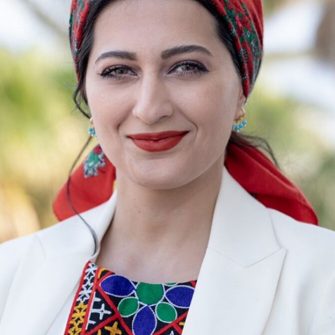 Basma AlaweeDeputy Executive Director, Community Sponsorship HubDialog
Basma AlaweeDeputy Executive Director, Community Sponsorship HubDialog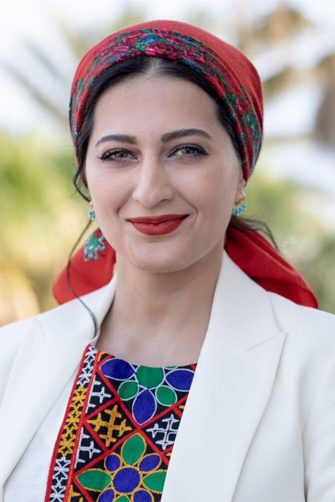

Basma Alawee
Deputy Executive DirectorCommunity Sponsorship HubBasma Alawee is a Deputy Executive Director for the Community Sponsorship Hub. Prior to that she was the National Campaign Director for We Are All America at National Partnership for New Americans. Basma led organizing efforts in more than 21 states to push for policy changes and support for the inclusion of refugee and immigrant communities. She is a co-designer of the US Refugee Advisory Board, where she previously served as the first refugee advisor on the US Government Delegation to UNHCR’s annual Executive Committee. Basma is a champion for the rights of refugees and immigrants, using her own story to empower others and effect change on a national level. As a partner, leader and advocate, she is committed to centering lived experiences in inclusive policy design and decision-making.
-
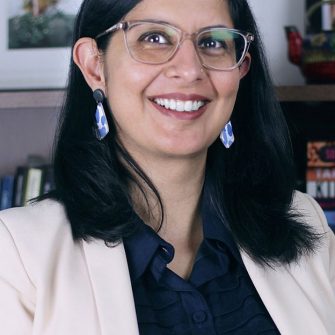 Dr Sukhmani KhoranaScientia Associate Professor, School of Arts and Media, UNSW SydneyDialog
Dr Sukhmani KhoranaScientia Associate Professor, School of Arts and Media, UNSW SydneyDialog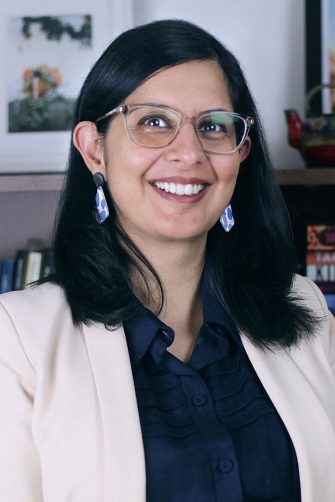

Dr Sukhmani Khorana
Scientia Associate ProfessorSchool of Arts and Media, UNSW SydneyDr Sukhmani Khorana is a Scientia Associate Professor in the School of Arts and Media at UNSW Sydney. Sukhmani has published extensively on migrant media, the politics of empathy and belonging, and self-representation for refugees. She is the author of Mediated Emotions of Migration: Reclaiming Affect for Agency (2023), The Tastes and Politics of Inter-Cultural Food in Australia (2018), and a co-authored book, Migrants, Television and Australian Stories: A New History (2025). Sukhmani has an emerging interest in discourses of race and multiculturalism in the era of information disorder.
-
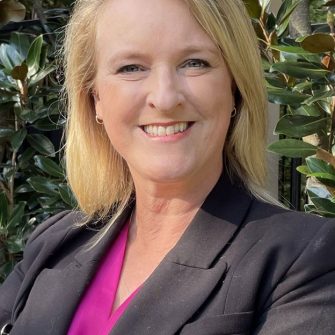 Kylea TinkAmbassador, Community Independents ProjectDialog
Kylea TinkAmbassador, Community Independents ProjectDialog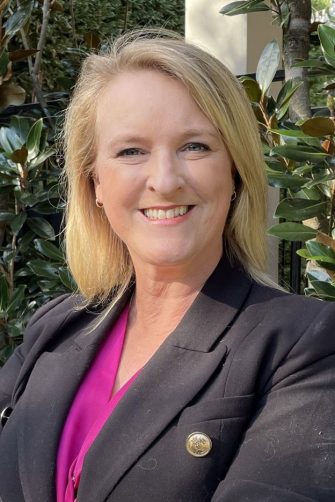

Kylea Tink
AmbassadorCommunity Independents ProjectKylea Tink is a trailblazing leader, experienced executive, and passionate social advocate. The first woman elected to represent the federal seat of North Sydney, she is widely recognised as a formidable agent of change. Before entering politics, Kylea held senior roles as CEO, Managing Director, Board Member and Strategist, successfully building and leading not-for-profits, businesses, and high-performing teams. A prominent member of the 'Teal Wave' that reshaped Australian politics in 2022, Kylea brings over 35 years of experience driving meaningful change across sectors and communities. A regular media commentator, she is known for her bold, values-driven advocacy – challenging the status quo and sparking the conversations that lead to real progress.
-
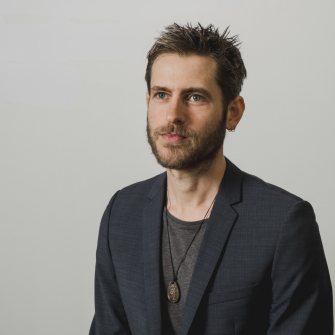 Saul WodakAdvisor, Behavioural Insights TeamDialog
Saul WodakAdvisor, Behavioural Insights TeamDialog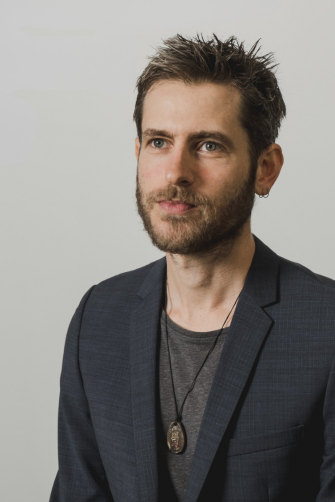

Saul Wodak
AdvisorBehavioural Insights TeamSaul Wodak is an Advisor at the Behavioural Insights Team (BIT) Sydney office. His work at BIT has been predominantly in the areas of energy and sustainability. Saul’s recent projects have focussed on how to effectively communicate to the public about the climate crisis and build support for climate solutions, and the development of the National Guidelines for Community Engagement and Benefits for Electricity Transmission Projects. Saul’s work to develop interventions to help consumers identify greenwashing has been published in the New York Times and The Australian. Saul has worked on a diverse range of projects on gender equality, education, consumer welfare and digital health. He completed an MSc in Behaviour Change at University College London in 2019 and a B.Lib Studies with an Honours in Psychology at the University of Sydney.
-
 Prof Jane McAdam AOScientia Professor of Law, Kaldor Centre for International Refugee LawDialog
Prof Jane McAdam AOScientia Professor of Law, Kaldor Centre for International Refugee LawDialog

Prof Jane McAdam AO
Scientia Professor of LawKaldor Centre for International Refugee LawProfessor Jane McAdam AO is Scientia Professor of Law, an Australian Research Council Laureate Fellow and the Founding Director of the Kaldor Centre for International Refugee Law at UNSW Sydney, where she leads the Evacuations Research Hub. She is a Fellow of both the Academy of the Social Sciences in Australia and the Australian Academy of Law, and an Honorary Associate of the Refugee Studies Centre at Oxford University. Professor McAdam publishes widely in international refugee law and forced migration, with a particular focus on evacuations and mobility in the context of climate change and disasters. She serves on multiple international committees and for a decade was the joint Editor-in-Chief of the International Journal of Refugee Law, the leading journal in the field. In 2021, she was appointed an Officer of the Order of Australia (AO) ‘for distinguished service to international refugee law, particularly to climate change and the displacement of people’.
In an era of polarisation, how can we build shared understanding about refugee protection – especially when misinformation, algorithmic echo chambers and racial anxieties cloud the conversation? This panel will explore evidence-based strategies for fostering constructive public engagement on refugee and migration issues. Drawing on insights from research, policy and practice, speakers will examine how to build common ground across political and cultural divides, and how to amplify refugee voices in shaping the conversation. At a time when fear often overrides facts, this discussion will highlight what works to foster honest, respectful dialogue. Chair: Jane McAdam AO, Kaldor Centre for International Refugee Law.
Q&A to follow after the panel discussion.
-
-
-
-
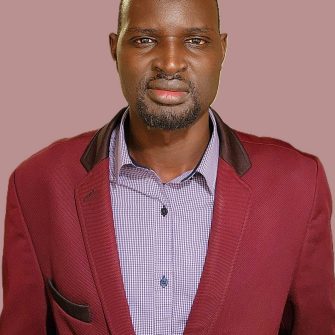 Dor Akech AchiekInterim CEO, Western Sydney Migrant Resource CentreDialog
Dor Akech AchiekInterim CEO, Western Sydney Migrant Resource CentreDialog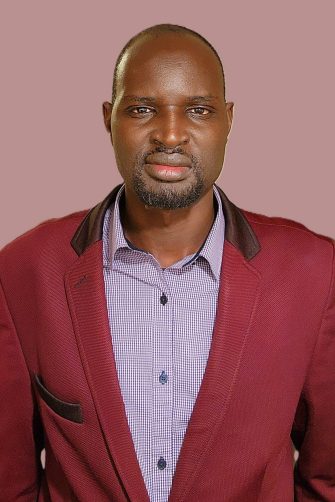

Dor Akech Achiek
Interim CEOWestern Sydney Migrant Resource CentreDor Akech Achiek is the new Interim CEO, Western Sydney Migrant Resource Centre. Previously, Dor was Group Head of Settlement Services at SSI, leading strategic and operational delivery of programs supporting newcomers and multicultural communities across Australia’s eastern seaboard. With over 15 years of experience in settlement, youth, and community services, Dor has held leadership roles including SSI Settlement Services Manager leading the then NSW Settlement Partnership of 22 providers, SSI Youth Projects Coordinator, where he oversaw the Youth Collective for migrant and refugee youth in NSW and led significant community advocacy initiatives globally, nationally and locally. A former refugee from South Sudan who arrived in Australia in 2003 after nine years in Kakuma refugee camp, Dor brings lived experience and professional expertise to his work. He holds a Master’s in International Law and International Relations, a BA in Politics and International Relations, and diplomas in Community Services and Children’s Services. Dor serves on several advisory committees including the UNHCR Global Refugee Advisory Group, Asia Pacific Network of Refugees, and NSW Office of Sport. A dedicated community advocate, he was recognised by the AMP Tomorrow Foundation for establishing the South Sudanese Youth Cultural Activities Program in Western Sydney.
-
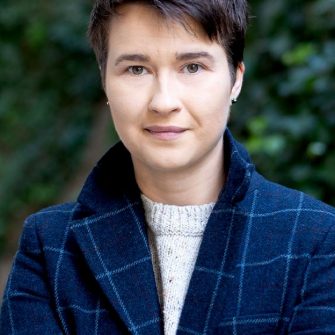 Dr Renee DixsonExecutive Director, Forcibly Displaced People NetworkDialog
Dr Renee DixsonExecutive Director, Forcibly Displaced People NetworkDialog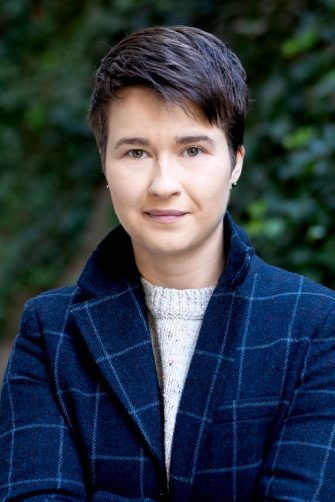

Dr Renee Dixson
Executive DirectorForcibly Displaced People NetworkDr Renee Dixson is the Co-Founder and Executive Director of the Forcibly Displaced People Network (FDPN), Australia’s national peak body led by LGBTIQA+ forcibly displaced people. Of Qazaq-Ukrainian heritage, Renee brings lived experience of displacement together with policy and academic expertise. They are actively advancing national and international advocacy, to close systemic gaps for LGBTIQA+ displaced people. Renee serves on several advisory bodies, including the UNHCR Advisory Board, the Australian Refugee Advisory Panel. Their work drives structural change by embedding the meaningful participation of LGBTIQA+ forcibly displaced people in decision-making, that policies and systems reflect lived realities and ensure equitable access to safety, services, and opportunities.
-
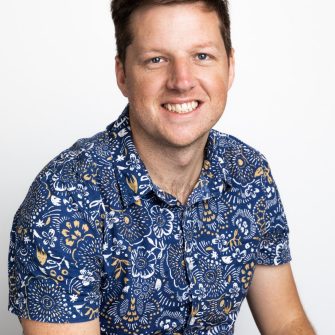 Dr Tristan HarleySenior Research Associate, Kaldor Centre for International Refugee LawDialog
Dr Tristan HarleySenior Research Associate, Kaldor Centre for International Refugee LawDialog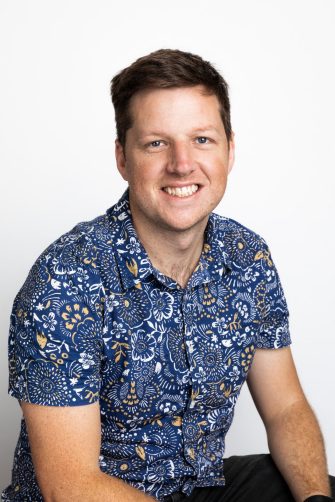

Dr Tristan Harley
Senior Research AssociateKaldor Centre for International Refugee LawDr Tristan Harley is a Senior Research Associate at the Kaldor Centre for International Refugee Law and serves as Academic Advisor to the Australian Refugee Advisory Panel. Tristan is dual-trained as a lawyer and historian, and is recognised for his expertise in the fields of international refugee and human rights law. He has published widely in the field and has also worked as a consultant for the United Nations High Commissioner for Refugees (UNHCR), the World Refugee Council, the Asia Pacific Refugee Rights Network, the Asia Pacific Network of Refugees, the Asia Pacific Network for Refugees, and Act for Peace. Tristan's current research focuses on the international law and policy framework governing the meaningful participation of refugees in decision-making processes that affect them. Alongside this research, Tristan oversees the Kaldor Centre's Displaced Scholars Peer Mentoring Program and the Kaldor Centre's Emerging Scholars Network.
-
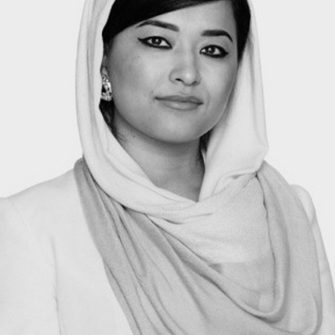 Najeeba WazefadostExecutive Director, Asia Pacific Network of RefugeesDialog
Najeeba WazefadostExecutive Director, Asia Pacific Network of RefugeesDialog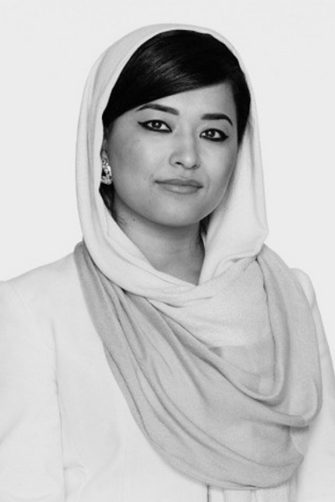

Najeeba Wazefadost
Executive DirectorAsia Pacific Network of RefugeesNajeeba Wazefadost is a former refugee from Afghanistan who holds a Bachelor of Medical Science. She is Executive Director of the Asia Pacific Network of Refugees. She co-founded the Global Refugee-Led Network and is a founding member of GIRWL (Global Independent Refugee Women Leaders). Najeeba has been actively involved in the development of refugee-led networks at both the regional and global level, focusing on bringing together refugee and migrant-led organizations and refugee change-makers from around the world to gather to discuss their lived experiences and propose solutions for more effective and sustainable refugee policy. She is an advocate, educator, public speaker, and researcher. Through all her work, she prioritises and amplifies the voices, experiences, and aspirations of those most directly impacted.
-
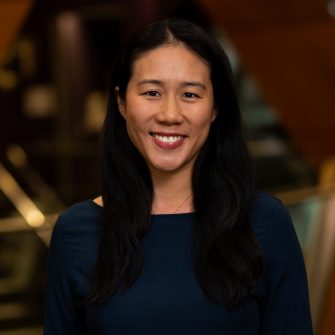 Frances VoonExecutive Manager, Kaldor Centre for International Refugee LawDialog
Frances VoonExecutive Manager, Kaldor Centre for International Refugee LawDialog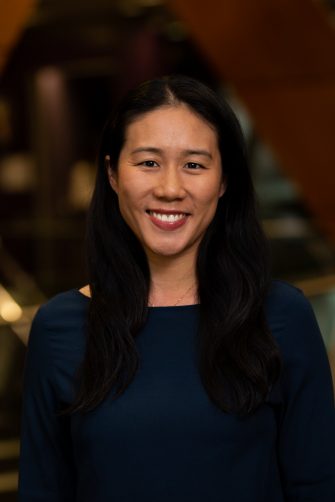

Frances Voon
Executive ManagerKaldor Centre for International Refugee LawFrances Voon is Executive Manager of the Kaldor Centre for International Refugee Law, and brings extensive global experience from work in refugee operations with the UN High Commissioner for Refugees, UN World Food Programme and Jesuit Refugee Service. She completed an MPhil in Development Studies at the University of Oxford as a John Monash Scholar, and holds an LLB/BA (Hons) from UNSW Sydney. She was Tipstaff to Justice John Basten at the Supreme Court of New South Wales and is admitted to legal practice. In 2021, she was named amongst the 40 Under 40 Most Influential Asian-Australians (winner of the Community and Advocacy/Not-for Profit category), and she was winner of the Advance Global Australians Social Impact Award in 2022.
Refugee communities and refugee-led organisations have made their message clear: 'Nothing about us without us.' Meaningful refugee participation is more than a principle. It’s a necessary foundation for creating solutions that are effective, inclusive and sustainable. How do aspiring allies go beyond good intentions to centre the inclusion and meaningful participation of refugees? This panel will explore opportunities for reform and practical strategies that individuals, organisations and institutions can use to shift power dynamics and build authentic partnerships with refugee communities. Chair: Frances Voon, Kaldor Centre for International Refugee Law.
Q&A to follow the panel discussion.
-
-
-
-
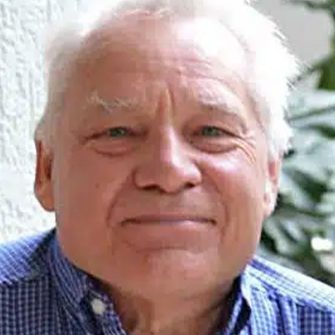 Dr Jeff CrispVisiting Research Fellow, Refugee Studies Centre, University of OxfordDialog
Dr Jeff CrispVisiting Research Fellow, Refugee Studies Centre, University of OxfordDialog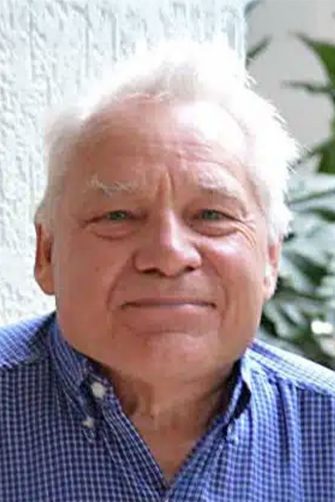

Dr Jeff Crisp
Visiting Research FellowRefugee Studies Centre, University of OxfordDr Jeff Crisp is an expert analyst on refugee, migration and humanitarian issues, and is currently a Visiting Research Fellow at the Refugee Studies Centre, University of Oxford. He has held senior positions with UNHCR, where he was Head of Policy Development and Evaluation, Refugees International (Senior Director for Policy and Advocacy) and the Global Commission on International Migration (Director of Policy and Research). He has also worked for the Independent Commission on International Humanitarian Issues, the British Refugee Council and Coventry University. He has first-hand experience of refugee situations and humanitarian operations throughout the world and has published and lectured extensively on refugee, migration and humanitarian issues. He holds a Masters degree and PhD in African Studies and Political Science from the University of Birmingham and is a Honorary Professor at the University of Sussex.
-
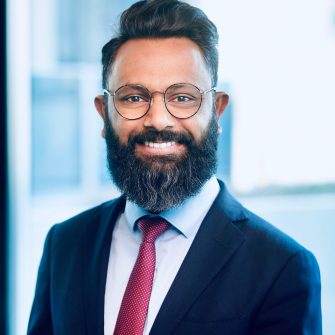 James JegasothyDeputy CEO, Multicultural NSWDialog
James JegasothyDeputy CEO, Multicultural NSWDialog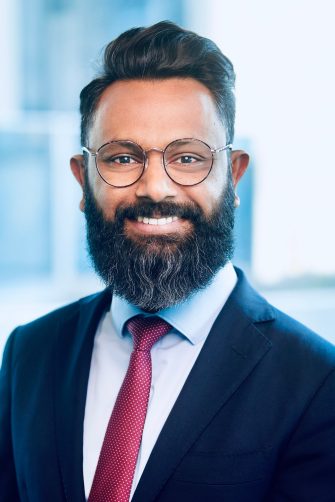

James Jegasothy
Deputy CEOMulticultural NSWHaving come to Australia as a refugee, James is passionate about achieving equitable outcomes for vulnerable people and communities. Informed by his personal history, he has more than two decades of experience working with culturally and linguistically diverse communities and has held strategic leadership and governance roles in government, for-purpose, and community organisations. As Deputy CEO of Multicultural NSW, he advises State Government on policies and programs to achieve the full potential of multiculturalism. Prior to this he was the Executive Director at the Western Australian Office of Multicultural Interests. He has also held roles as a Board Director of the WA Child and Adolescent Health Service (Children’s Hospital), Chair of Rise Network (an aged care and disability services provider), Member or the Anglican Social Responsibility Commission, Vice Chair of the Centre for Asylum Seekers, Refugees and Detainees, Secretary of the Ethnic Communities Council of WA, the WA State Manager for Welcome to Australia and led asylum seeker programs for Australian Red Cross.
-
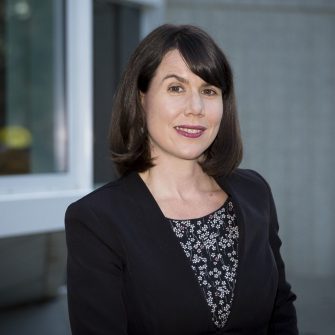 Prof Kate OggProfessor, ANU Law School, Australian National UniversityDialog
Prof Kate OggProfessor, ANU Law School, Australian National UniversityDialog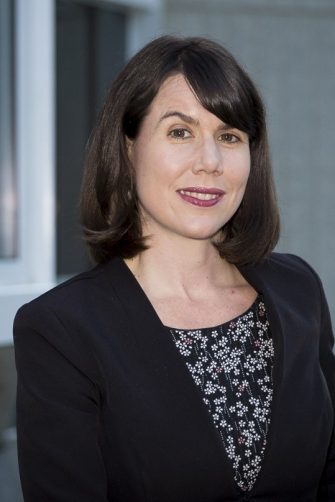

Prof Kate Ogg
ProfessorANU Law School, Australian National UniversityKate is an Australian Research Council (ARC) Fellow and a Professor at the Australian National University where she specialises in international refugee and human rights law. She is the author of many influential publications including Protection from Refuge: From Refugee Rights to Migration Management (CUP, 2022) which is an international and comparative examination of the role courts play in refugee journeys. Kate is currently working on two ARC funded projects. Her ARC Discovery Project (with Associate Professor Anthea Vogl, Dr Nathan Gardner and Professor Susan Kneebone as Lead Investigator) focuses on refugee community sponsorship. Kate’s ARC Fellowship examines the growth and development of strategic human rights litigation in Australia as well as emerging transnational approaches to strategic litigation for refugee rights. She is also working on a third project involving scholars with lived experience of displacement rewriting refugee law judicial decisions, which is inspired by feminist judgments methodology.
-
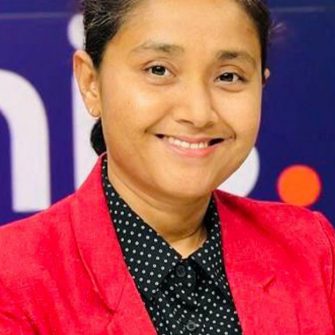 Hafsar TameesuddinCo-Secretary General, Asia Pacific Refugee Rights NetworkDialog
Hafsar TameesuddinCo-Secretary General, Asia Pacific Refugee Rights NetworkDialog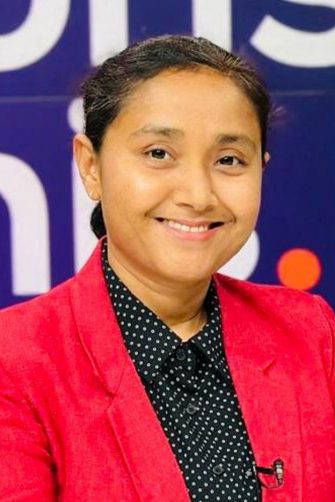

Hafsar Tameesuddin
Co-Secretary GeneralAsia Pacific Refugee Rights NetworkHafsar Tameesuddin is the Co-Secretary General of the Asia Pacific Refugee Rights Network, a social worker, human rights defender and Rohingya activist. They advocate for the rights of refugees, LGBTQI+ communities, statelessness, gender equality, prevention and response to sexual and gender-based violence (SGBV) and ending child marriages with more than 15 years of experience working with refugee communities, and international and national non-government organisations. They are an advisory member of the Global Movement of Statelessness, board member at Forces of Renewal Southeast Asia, and served as an an advisor to UNHCR. Their expertise includes understanding the ground realities of challenges faced by refugees, statelessness and LGBTQI+ communities as someone with lived experience. They are a passionate advocate for power shifts, inclusion and diversity within systems. Their work and advocacy are centred on improving prevention and response measures to SGBV, and promoting and protecting the rights of refugees, stateless people, asylum seekers, and LGBTQI+ communities in the Asia Pacific region and beyond.
-
 Prof Daniel GhezelbashProfessor of Law & Director, Kaldor Centre for International Refugee LawDialog
Prof Daniel GhezelbashProfessor of Law & Director, Kaldor Centre for International Refugee LawDialog

Prof Daniel Ghezelbash
Professor of Law & DirectorKaldor Centre for International Refugee LawProfessor Daniel Ghezelbash is Director of the Kaldor Centre for International Refugee Law, and an Australian Research Council DECRA Fellow. A globally recognised expert in international and comparative refugee and migration law, his research focuses on improving the fairness and efficiency of asylum procedures through comparative analysis. Daniel has published extensively on the global spread of restrictive asylum policies and is a passionate advocate for using technology to advance access to justice and combat systemic discrimination. He founded the Kaldor Centre Data Lab, pioneering data-driven approaches to legal decision-making in refugee cases, and is a leading voice in legal technology and generative AI in Australia. He is Special Counsel at the National Justice Project, and sits on the boards of the Refugee Advice and Casework Service, Wallumatta Legal, and the Access to Justice and Technology Network.
At this moment marked by geopolitical retreat and shrinking humanitarian budgets, traditional State-led refugee protection mechanisms are under immense strain. The Trump administration’s rollback of refugee resettlement and the ongoing funding cuts to UNHCR have left significant gaps in the global protection architecture. This panel explores how whole-of-society approaches – that mobilise actors across government, civil society, the private sector, academia and refugee-led initiatives – can offer a resilient and inclusive response to these challenges. Chair: Daniel Ghezelbash, Kaldor Centre for International Refugee Law.
Q&A to follow the panel discussion.
-
-
-
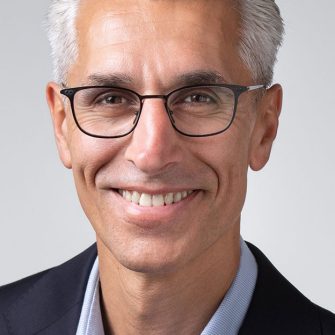 Hugh de KretserPresident, Australian Human Rights CommissionDialog
Hugh de KretserPresident, Australian Human Rights CommissionDialog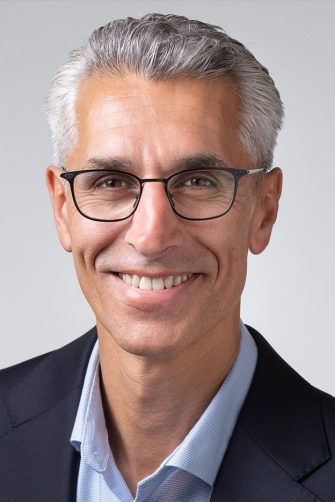

Hugh de Kretser
PresidentAustralian Human Rights CommissionHugh de Kretser commenced his five-year term as President of the Australian Human Rights Commission on 30 July 2024. For more than two decades, Hugh has played a critical role advancing human rights in Australia. He was the CEO of the Yoorrook Justice Commission, the first formal truth-telling process into historical and ongoing injustices experienced by First Nations people in Victoria. He also led the Human Rights Law Centre where he undertook extensive advocacy and legal action to defend the rights of refugees and people seeking asylum. Prior to that he was the Executive Officer of the Victorian Federation of Community Legal Centres and the manager of the Brimbank Melton Community Legal Centre in Melbourne’s outer western suburbs.
Hugh de Kretser, President of the Australian Human Rights Commission, will deliver the closing keynote address.
-
-
-
 Andrew LynchProfessor of Law & Dean, Law & Justice, UNSW SydneyDialog
Andrew LynchProfessor of Law & Dean, Law & Justice, UNSW SydneyDialog

Andrew Lynch
Professor of Law & Dean, Law & JusticeUNSW SydneyProfessor Andrew Lynch is Dean at UNSW Law & Justice. He has previously served as Head of School and Deputy Dean of the Law School. He teaches and researches in the field of Australian constitutional law. His research concentrates on the topics of federalism, judicial dissent, judicial appointments and education, and legal responses to terrorism.
Andrew is an author of several books including Blackshield & Williams’ Australian Constitutional Law and Theory (6th ed, 2014; 7th ed, 2018), Australia's Greatest Judicial Crisis - The Tim Carmody Affair (2016) and Inside Australia’s Anti-terrorism Laws and Trials (2014). He is also an editor of other books that include Counter-Terrorism and Beyond: The Culture of Law and Justice After 9/11 (2010), Tomorrow’s Federation: Reforming Australian Government (2012), Great Australian Dissents (2016) and The Judge, the Judiciary and the Court: Individual, Collegial and Institutional Judicial Dynamics in Australia (2021).
Close of conference
-
-
Join us for drinks, canapes and conversation at our #Kaldor25 closing reception.
6:30pm: Close of day
Friday, 24 October
- Friday
-
The 2025 Emerging Scholars Network Annual Workshop is co-hosted by UNSW's Kaldor Centre for International Refugee Law and Forced Migration Research Network. This hybrid workshop is an opportunity for early-career scholars in the field of refugee and forced migration studies to showcase new research and connect with a diverse range of researchers from around the world. This hybrid event will be held at the UNSW Faculty of Law & Justice in Sydney, on Friday 24 October. A skills workshop will also take place on Wednesday 22 October from 3-5pm.
Learn more and register here.
Speakers
Take a look at our outstanding line-up of speakers, explore the full list and get inspired! You can also explore speaker profiles within the Program to help prepare for the session.



Basma Alawee
Basma Alawee is a Deputy Executive Director for the Community Sponsorship Hub. Prior to that she was the National Campaign Director for We Are All America at National Partnership for New Americans. Basma led organizing efforts in more than 21 states to push for policy changes and support for the inclusion of refugee and immigrant communities. She is a co-designer of the US Refugee Advisory Board, where she previously served as the first refugee advisor on the US Government Delegation to UNHCR’s annual Executive Committee. Basma is a champion for the rights of refugees and immigrants, using her own story to empower others and effect change on a national level. As a partner, leader and advocate, she is committed to centering lived experiences in inclusive policy design and decision-making.



Dor Akech Achiek
Dor Akech Achiek is the new Interim CEO, Western Sydney Migrant Resource Centre. Previously, Dor was Group Head of Settlement Services at SSI, leading strategic and operational delivery of programs supporting newcomers and multicultural communities across Australia’s eastern seaboard. With over 15 years of experience in settlement, youth, and community services, Dor has held leadership roles including SSI Settlement Services Manager leading the then NSW Settlement Partnership of 22 providers, SSI Youth Projects Coordinator, where he oversaw the Youth Collective for migrant and refugee youth in NSW and led significant community advocacy initiatives globally, nationally and locally. A former refugee from South Sudan who arrived in Australia in 2003 after nine years in Kakuma refugee camp, Dor brings lived experience and professional expertise to his work. He holds a Master’s in International Law and International Relations, a BA in Politics and International Relations, and diplomas in Community Services and Children’s Services. Dor serves on several advisory committees including the UNHCR Global Refugee Advisory Group, Asia Pacific Network of Refugees, and NSW Office of Sport. A dedicated community advocate, he was recognised by the AMP Tomorrow Foundation for establishing the South Sudanese Youth Cultural Activities Program in Western Sydney.



Dr Jeff Crisp
Dr Jeff Crisp is an expert analyst on refugee, migration and humanitarian issues, and is currently a Visiting Research Fellow at the Refugee Studies Centre, University of Oxford. He has held senior positions with UNHCR, where he was Head of Policy Development and Evaluation, Refugees International (Senior Director for Policy and Advocacy) and the Global Commission on International Migration (Director of Policy and Research). He has also worked for the Independent Commission on International Humanitarian Issues, the British Refugee Council and Coventry University. He has first-hand experience of refugee situations and humanitarian operations throughout the world and has published and lectured extensively on refugee, migration and humanitarian issues. He holds a Masters degree and PhD in African Studies and Political Science from the University of Birmingham and is a Honorary Professor at the University of Sussex.



Hugh de Kretser
Hugh de Kretser commenced his five-year term as President of the Australian Human Rights Commission on 30 July 2024. For more than two decades, Hugh has played a critical role advancing human rights in Australia. He was the CEO of the Yoorrook Justice Commission, the first formal truth-telling process into historical and ongoing injustices experienced by First Nations people in Victoria. He also led the Human Rights Law Centre where he undertook extensive advocacy and legal action to defend the rights of refugees and people seeking asylum. Prior to that he was the Executive Officer of the Victorian Federation of Community Legal Centres and the manager of the Brimbank Melton Community Legal Centre in Melbourne’s outer western suburbs.



Dr Renee Dixson
Dr Renee Dixson is the Co-Founder and Executive Director of the Forcibly Displaced People Network (FDPN), Australia’s national peak body led by LGBTIQA+ forcibly displaced people. Of Qazaq-Ukrainian heritage, Renee brings lived experience of displacement together with policy and academic expertise. They are actively advancing national and international advocacy, to close systemic gaps for LGBTIQA+ displaced people. Renee serves on several advisory bodies, including the UNHCR Advisory Board, the Australian Refugee Advisory Panel. Their work drives structural change by embedding the meaningful participation of LGBTIQA+ forcibly displaced people in decision-making, that policies and systems reflect lived realities and ensure equitable access to safety, services, and opportunities.



Mohammed Naeem
Mohammed Naeem is the Senior Director for Advocacy Strategy at Refugees International, where he drives the organization’s congressional engagement. Previously, between roles at the American Immigration Council and More in Common, Mohammed built nationally recognized public advertising campaigns, spearheaded cross-sector partnerships, and socialized signature audience research. He has held several leadership roles, including as the inaugural Chair of the United States Refugee Advisory Board and Representative of UNHCR’s Refugee Advisory Group to the Consultations on Resettlement and Complementary Pathways. He currently serves on the Advisory Committee on Public Issues of the Ad Council, the Advisory Council of Pathways International, and the Board of Directors of Refugee Council USA. Mohammed is a graduate of Stony Brook University and lives in Queens, New York.



Prof Kate Ogg
Kate is an Australian Research Council (ARC) Fellow and a Professor at the Australian National University where she specialises in international refugee and human rights law. She is the author of many influential publications including Protection from Refuge: From Refugee Rights to Migration Management (CUP, 2022) which is an international and comparative examination of the role courts play in refugee journeys. Kate is currently working on two ARC funded projects. Her ARC Discovery Project (with Associate Professor Anthea Vogl, Dr Nathan Gardner and Professor Susan Kneebone as Lead Investigator) focuses on refugee community sponsorship. Kate’s ARC Fellowship examines the growth and development of strategic human rights litigation in Australia as well as emerging transnational approaches to strategic litigation for refugee rights. She is also working on a third project involving scholars with lived experience of displacement rewriting refugee law judicial decisions, which is inspired by feminist judgments methodology.



Hafsar Tameesuddin
Hafsar Tameesuddin is the Co-Secretary General of the Asia Pacific Refugee Rights Network, a social worker, human rights defender and Rohingya activist. They advocate for the rights of refugees, LGBTQI+ communities, statelessness, gender equality, prevention and response to sexual and gender-based violence (SGBV) and ending child marriages with more than 15 years of experience working with refugee communities, and international and national non-government organisations. They are an advisory member of the Global Movement of Statelessness, board member at Forces of Renewal Southeast Asia, and served as an an advisor to UNHCR. Their expertise includes understanding the ground realities of challenges faced by refugees, statelessness and LGBTQI+ communities as someone with lived experience. They are a passionate advocate for power shifts, inclusion and diversity within systems. Their work and advocacy are centred on improving prevention and response measures to SGBV, and promoting and protecting the rights of refugees, stateless people, asylum seekers, and LGBTQI+ communities in the Asia Pacific region and beyond.



Kylea Tink
Kylea Tink is a trailblazing leader, experienced executive, and passionate social advocate. The first woman elected to represent the federal seat of North Sydney, she is widely recognised as a formidable agent of change. Before entering politics, Kylea held senior roles as CEO, Managing Director, Board Member and Strategist, successfully building and leading not-for-profits, businesses, and high-performing teams. A prominent member of the 'Teal Wave' that reshaped Australian politics in 2022, Kylea brings over 35 years of experience driving meaningful change across sectors and communities. A regular media commentator, she is known for her bold, values-driven advocacy – challenging the status quo and sparking the conversations that lead to real progress.



Najeeba Wazefadost
Najeeba Wazefadost is a former refugee from Afghanistan who holds a Bachelor of Medical Science. She is Executive Director of the Asia Pacific Network of Refugees. She co-founded the Global Refugee-Led Network and is a founding member of GIRWL (Global Independent Refugee Women Leaders). Najeeba has been actively involved in the development of refugee-led networks at both the regional and global level, focusing on bringing together refugee and migrant-led organizations and refugee change-makers from around the world to gather to discuss their lived experiences and propose solutions for more effective and sustainable refugee policy. She is an advocate, educator, public speaker, and researcher. Through all her work, she prioritises and amplifies the voices, experiences, and aspirations of those most directly impacted.
Our Commitment
The Kaldor Centre for International Refugee Law at UNSW Sydney is committed to creating an inclusive, respectful and safe environment for dialogue and learning. We affirm that expertise takes many forms, and we value the contributions that emerge from lived experience, practice and research. We understand that some of the issues explored in our events may be sensitive or confronting, and so we all have a shared responsibility to support reflective, constructive and respectful conversations. To this end, we ask that all participants observe the following principles of engagement.
Principles of Engagement
- Respect, diversity and inclusion: We will treat each other with dignity, empathy and respect. Critique should focus on concepts or evidence, never on a person’s identity, experiences or background.
- Wellbeing and trauma-informed approaches: We have a responsibility to take reasonable care for our own and each other’s safety and wellbeing. This includes being mindful of the personal and collective impacts of the subjects being discussed, including traumatic and distressing experiences.
- Good-faith engagement: We acknowledge that building bridges may involve listening to perspectives that could cause us discomfort. We will engage constructively, courteously and with curiosity for learning. We will listen respectfully to different viewpoints and will avoid dominating or interrupting conversations.
- Academic freedom: Events held at UNSW must uphold the freedom of lawful speech by staff, students and visitors, alongside a duty to foster the health, wellbeing and safety of students and staff. The UNSW Code of Conduct and Values provides further details.
- Anti-racism and anti-religious vilification: In accordance with UNSW’s Anti-Racism and Anti-Religious Vilification Policy, we will not tolerate hate speech, discriminatory remarks or behaviour or language that may humiliate, intimidate, threaten or harass anyone on the basis of race, ethnicity, gender, sexuality, religious affiliation, disability or lived experience.
Support and Safety Measures
- Quiet spaces are available for anyone needing time out from discussions.
- Designated support contacts will be present throughout the day to provide assistance and direct participants to other appropriate support services.
- While participants are encouraged to practise self-care, they should contact support services or a Kaldor Centre staff member if they feel unsafe or have particular concerns.
Upholding these Guidelines
- The Kaldor Centre will follow up where behaviours are inconsistent with these Guidelines. This could include a gentle reminder, a request to pause or reframe a contribution or, in serious cases, asking a participant to leave.
Together, we all play a role in maintaining a space for open, respectful and constructive debate which respects lived experience, freedom of speech and the wellbeing of everyone involved.
-
The Kaldor Centre team is working to build an outstanding conference experience.
The in-person conference includes a full day of keynote and panel sessions at UNSW Sydney with morning tea, lunch and afternoon tea provided, and plenty of opportunities to network, including a complimentary closing networking reception.
This year we are offering the conference in a hybrid format. Virtual (online only) tickets would suit those unable to attend the in-person event but keen to take part on the day, as it unfolds, including the ability to participate in and access the Q&A discussions.
-
This event is open to all. The Kaldor Centre Conference is a valuable opportunity to gather policymakers, legal practitioners, established and early career academics, students, civil society organisations and community groups working to advance refugee protection.
-
The conference will be held on Thursday 23 October 2025 at UNSW Sydney, Australia, in the John Niland Scientia Building (located at G19 on the UNSW campus map).
In-person conference registration commences at 8.30am for a 9.00am start. A complimentary closing networking reception will take place following the conference from 5.00-6.30pm AEDT.
Virtual (online only) ticket access aligns with the program schedule from 9.00am-5.00pm AEDT. Virtual ticket holders will have access to watch sessions on-demand to suit different time zones.
-
Ticket types
- please note Standard and Reduced rate registration is now closed -
Standard registration - For policy makers, legal practitioners, industry, scholars and those who can cover the cost of their attendance.
Reduced rate registration - For NGOs, students and those who are unwaged.
Virtual registration - online only individual and organisation tickets available.
A Helping Hand donation - Generous support to help cover the cost a ticket for attendees with lived experience of displacement and others who may not otherwise be able to attend.
Free registration - We warmly encourage applications for free conference registration from participants with lived experience of displacement along with full-time students and those who may face financial barriers to attending. Apply here.
Ticket prices
Ticket type
Pricing Standard registration - ticket sales closed
Regular $310 / 3+Group^ $248
Reduced rate registration - ticket sales closed
Regular $245 / 3+Group^ $196
Virtual registration- individual Regular $124 (was $155) Virtual registration- organisation Regular $372 (was $465)
Ticket sales have now closed for Sydney attendance. Virtual tickets are still available.
^Save 20% per ticket when 3 or more participants register together. If your plans change, full refunds are available up to 7 days prior to the event. Ticket price includes 10% GST. Book now.
-
Yes and no.
No, not for in-person attendance. For catering and logistical purposes, advance purchase is required to allow us sufficient time to prepare for the day.
Yes, virtual tickets can be purchased on the day of the conference.
-
Yes. If you are unable to attend and would like to nominate someone to take your place, please let us know by email at kaldorcentre@unsw.edu.au so we can reissue the ticket to the new attendee and arrange their access.
-
Yes. Refunds are available up until 11:59pm on 14 October 2025 AEDT. Unfortunately, we are not able to process refunds after that date.
-
Yes. The 2025 Emerging Scholar’s Network Annual Workshop is co-hosted by UNSW’s Kaldor Centre for International Refugee Law and the Forced Migration Research Network, and will take place on Friday, 24 October at the Law & Justice Building, UNSW Sydney, Australia.
This is a separately ticketed event, learn more and register here.
-
Many legal practitioners earn CPD points. If you are an Australian legal practitioner, information about continuing professional development can be found here.
-
Yes, absolutely. At the end of the conference you will receive a link; simply complete the feedback survey and indicate that you need a certificate of attendance.
-
Filming and photography will occur throughout the day during sessions and meal breaks. Footage may be used for promotional and publication purposes. If you prefer not to be photographed or recorded, please notify a staff member at the registration desk.
-
Yes. You can find a range of nearby accommodation options in Randwick and Coogee, NSW, with a selection listed on the conference website or explore reputable booking portals.
The conference will be held on Thursday 23 October 2025 at UNSW Sydney, Australia, in the John Niland Scientia Building (located at G19 on the UNSW campus map).
UNSW campus map (G19)
Registration opens at 8:30am in the foyer of the John Niland Scientia Building at UNSW Sydney's Kensington campus. Please present your digital conference ticket on entry, with mobile check-in available.
The complimentary closing reception will take place from 5.00pm-6.30pm AEDT.
Virtual ticket holders: Access aligns with the program schedule which takes place between 9.00am-5.00pm AEDT. Virtual ticket holders will receive their access link via email.
Getting to the John Niland Scientia Building, (Library Road) UNSW Kensington Campus
Public Transport:
If you are coming from Central station or the CBD, catch the light rail L2 Randwick Line to upper Campus & disembark at UNSW Gate 9 on High Street. There are also several bus services available from CBD and surrounding suburbs that provide access to UNSW. For more information about public transport, including a journey planner, visit transportnsw.info.
Drop off/Uber/taxi:
If you will be arriving by Uber/taxi, the closest drop off at UNSW to the John Niland Scientia Building is via UNSW Gate 9 on High Street.
Parking:
The closest car parking station to the venue is on campus via Botany Street with entry through Gate 11 and the next closest is via Barker Street with entry through Gate 14.
All-day parking is avaiable and payments can be made through Pay-by-Plate meter (located next to the lift) on the ground floor. Alternatively, payment can be made by downloading the CellOPark app scanning the QR code found on the sign. Payment is required on arrival.
For more information visit parking on campus.
UNSW Sydney is located in Sydney's Eastern suburbs, and with easy access to the beach and transport line to the CBD. Below are some hotels located close to UNSW. Attendees need to arrange their booking directly with the accomodation provider.
We are pleased to offer a range of sponsorship opportunities throughout the conference for your organisation to contribute to the success of the 2025 Kaldor Centre Conference.
Please contact us at kaldorcentre@unsw.edu.au for more information and to receive a sponsorship prospectus.
If you would like additional information about the conference please contact us at: kaldorcentre@unsw.edu.au.
unsw.edu.au/kaldor-centre
The Andrew & Renata Kaldor Centre for International Refugee Law at UNSW Sydney is the world's first research centre dedicated to the study of international refugee law. The Centre was founded in 2013 to undertake rigorous research on the most pressing issues in Australia, the Asia-Pacific region and the world, and to contribute to public policy promoting legal, sustainable and humane solutions to forced migration.
We acknowledge the traditional owners of the lands on which we live and work, and pay our respects to their elders – past and present.
Banner image credit: UNHCR/Dobrin Kashavelov
